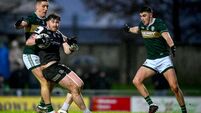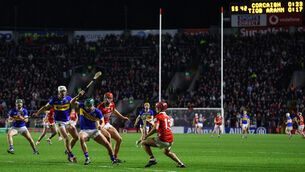Mayo’s Horan no stranger to mind games

Cast your mind back to last year’s All-Ireland quarter-finals and the pre-match war of words between Mayo and Donegal.
The then All-Ireland champions were, in fairness, the instigators. When now former selector Rory Gallagher spoke of collusion between Mayo and Monaghan he took the biscuit.












